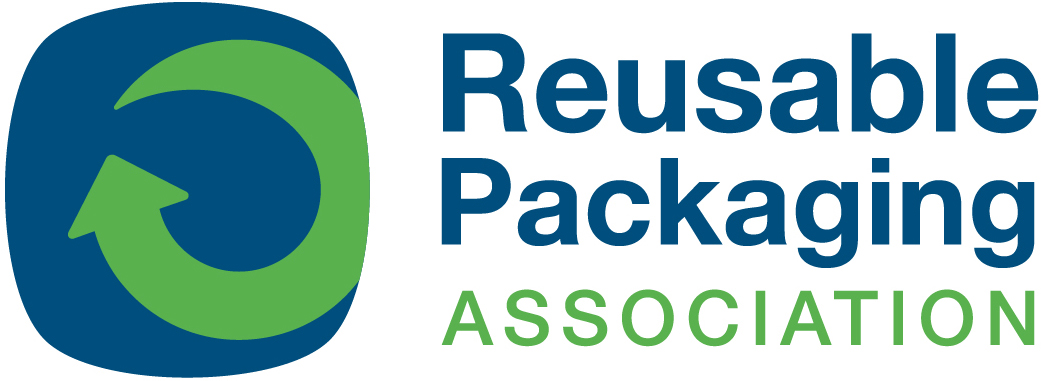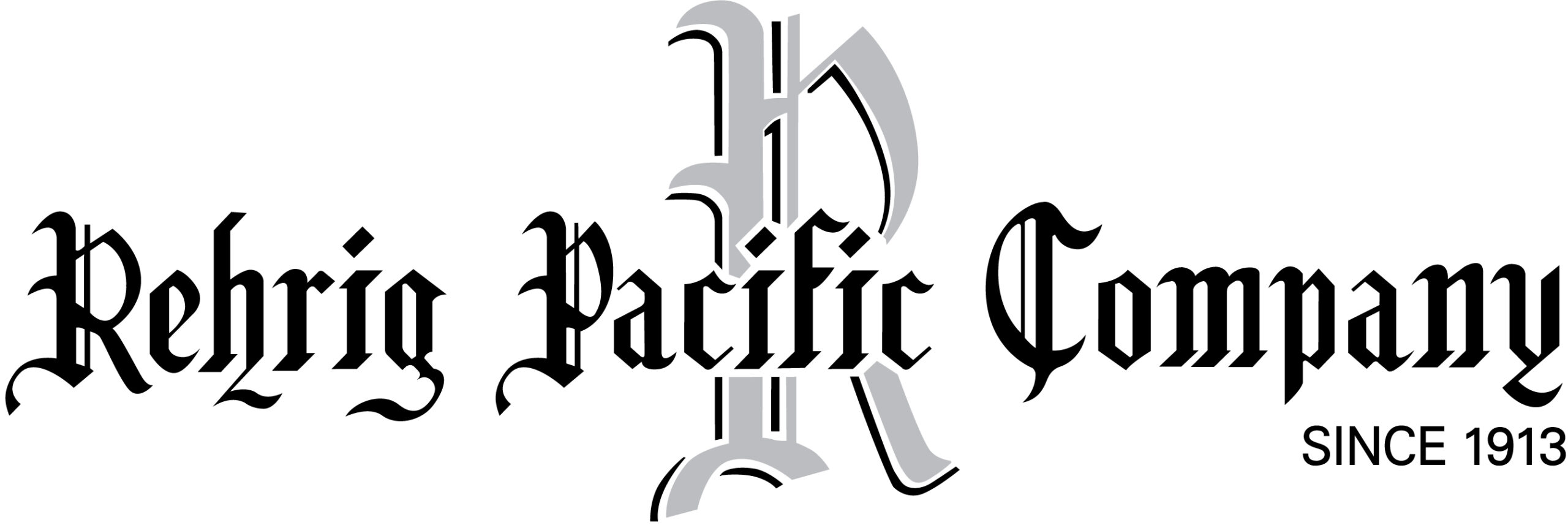Excellence in Reusable Packaging Award
Congratulations to the Winners of the 2023 Excellence in Reusable Packaging Awards
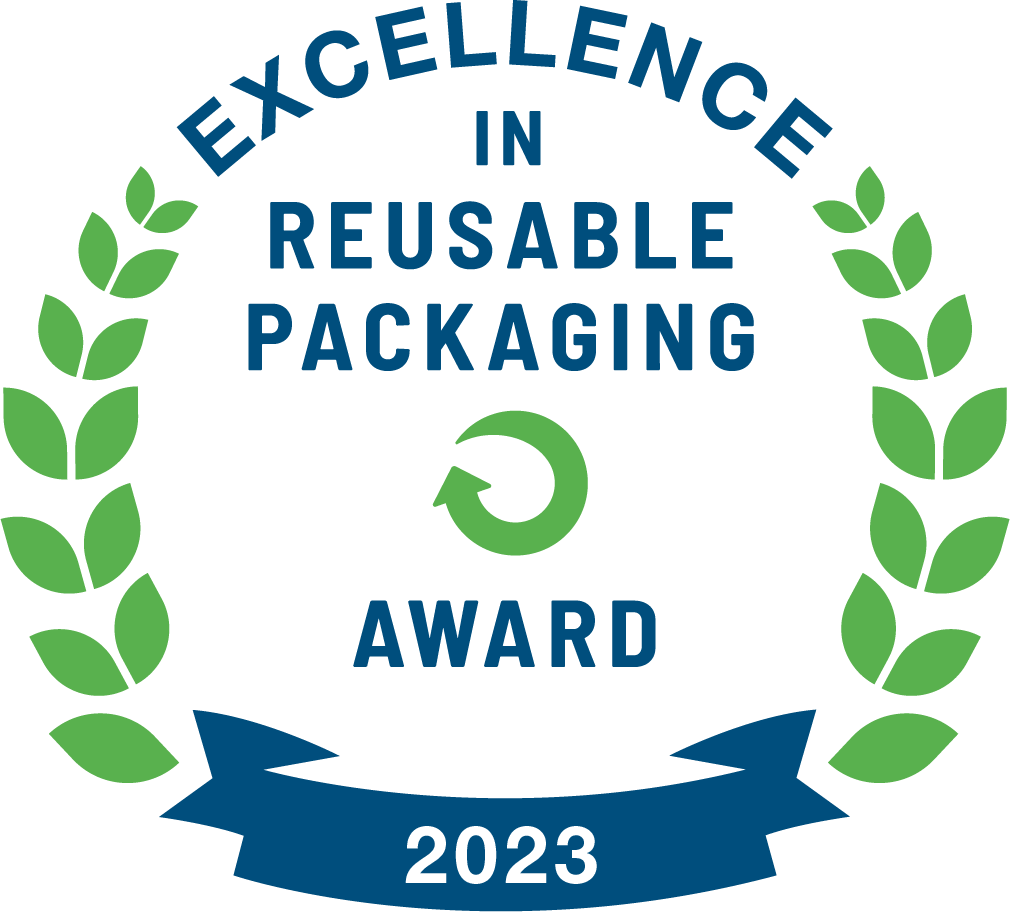
Reusable System Award
A fresh produce wholesaler based out of Fresno, California, OK Produce wins the Reusable System award for their implementation of a plastic pallet program in the distribution of perishable foods to their network of customers. OK Produce has introduced the reusable pallet program to 90% of their customer base, achieving cost-reductions, operational efficiencies, and solid waste reductions.
Design Innovation Award
A manufacturer of reusable transport packaging products, Schaefer Plastics North America wins the Design Innovation award for their electrostatic discharge (ESD) bulk bin. The Grounder™ is a 48-inch-wide x 45-inch-long x 45-inch-tall plastic molded bin with metal plungers that protect shipped electronic parts against electrostatic contamination while reducing expendable packaging materials.
Product Technology Award
A supplier of integrated sustainable solutions for logistics and delivery customers, including environmental waste and recycling, supply chain, and direct store delivery, Rehrig Pacific wins the Product Technology award for their Vision Object Recognition (VOR) system. VOR offers warehouse customers an advanced technology solution featuring integrated components such as smart pallets, artificial intelligence, and machine learning to improve material handling, recordkeeping, inventory tracking, and quality control.
Past Winners
Reusable System Award Category (2022)

Design Innovation Award Category (2022)

Product Technology Award Category (2022)

Thermo King and La Colombe (2021)
La Colombe implemented Schoeller Allibert’s Combo Excelsior Hybrid® IBCs in 2020 with Black Forest Container Systems as the pooler of the containers to create a closed loop system of reusable packaging with significant business and environmental benefits. The Combo Excelsior Hybrid IBC has an expected lifespan of 15 years.
Thermo King, a brand of global climate innovator Trane Technologies, replaced single-use wooden crates with a combined reusable packaging solution to help achieve their corporate initiative of zero waste to landfills by 2030 and other environmental objectives.
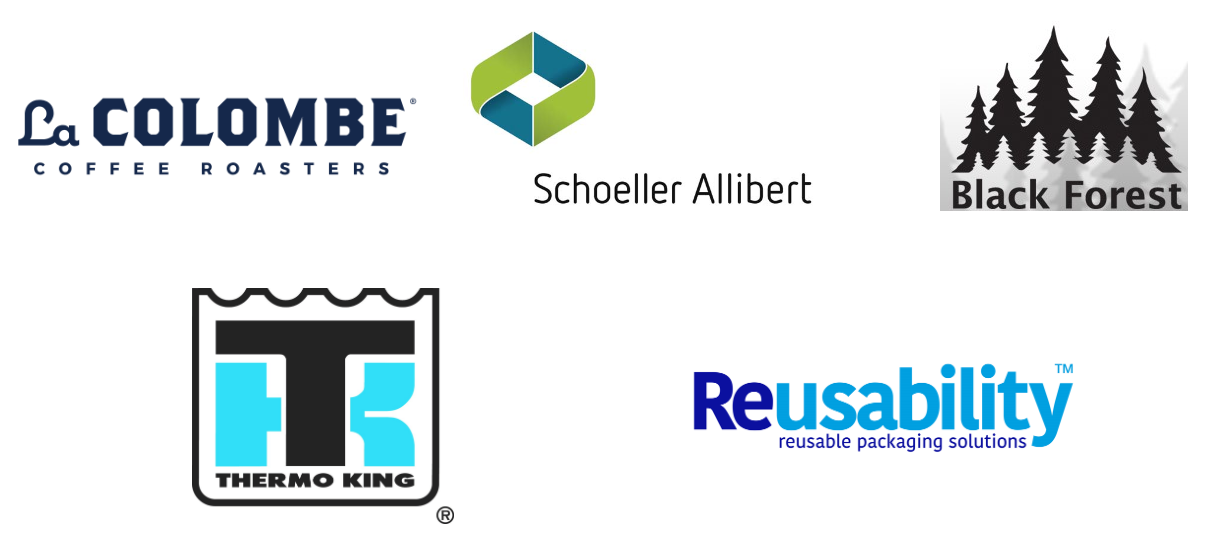
Alejandro Bulgheroni Estate and Liviri (2020)
Liviri reusable packaging partners with Alejandro Bulgheroni Estate to replace insulated cardboard boxes with Liviri Vino containers for e-commerce wine shipments, increasing product protection and reducing distribution costs and environmental impact.

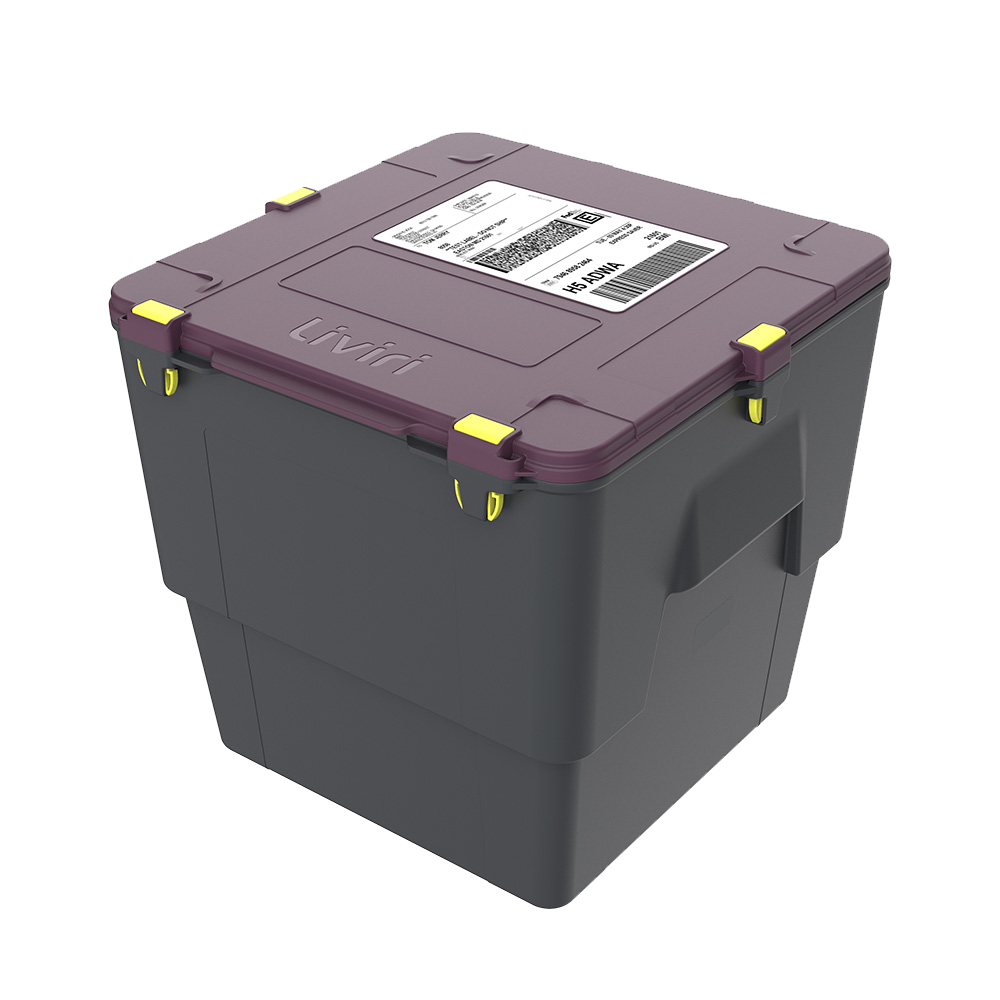
The Kroger Company and Polymer Logistics (2019)
Kroger’s adoption of the Polymer Logistics Cleanpal® pallet reduces distribution costs and environmental impact in the retailer’s fresh egg supply chain.
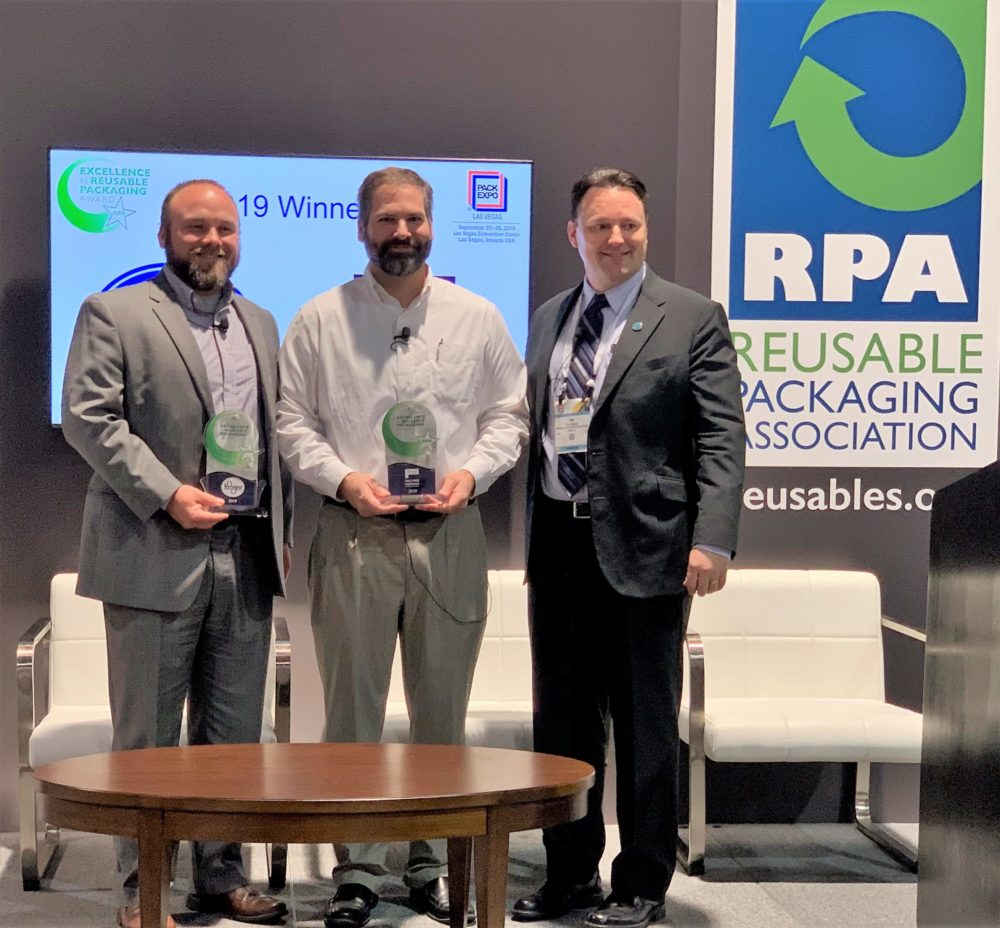
Anheuser-Busch InBev and DS Smith (2018)
Faced with a combination of operational and supply chain challenges in the production and transportation of two leading beer brands, AB InBev (ABI) invested in a comprehensive program of preventative maintenance, pallet redesign, and logistics redesign that not only improved environmental and business performance, but also extended the lifespan of reusable packaging components.
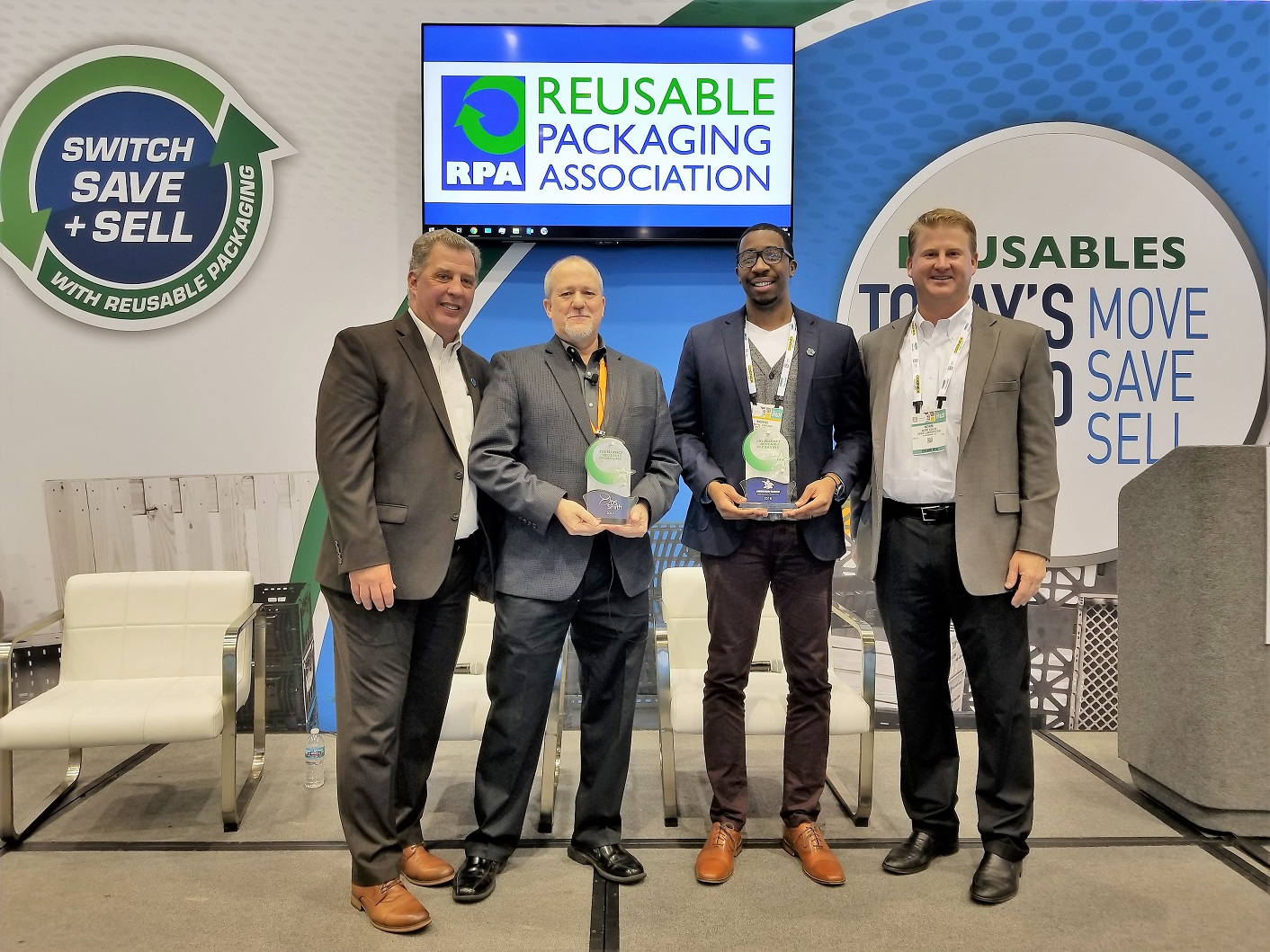
Goodwill Industries, STIHL, and ORBIS Corporation (2017)
By replacing corrugated cartons with standardized KTP GP3 reusable plastic containers, STIHL realized significant cost savings, a favorable payback on container purchases and required machinery modifications, reduction in material handling, forklift traffic, and down-time, along with improved intercompany inventory balance and component exchange…all while reducing the amount of cardboard returned for recycling by over 760 tons annually.
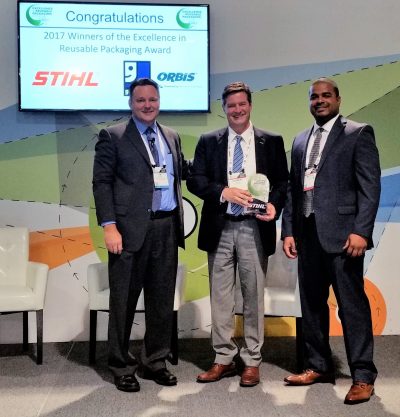
Cardinal Health (2016)
Faced with $4 Million in temperature-related product spoilage annually and the excessive cost and waste of single-use shipping materials, Cardinal Health needed cost-effective packaging solutions that could maintain product within narrow temperature levels and reduce their overall environmental impact. Their holistic, Innovative solution ensures safe, efficient, and sustainable delivery of refrigerated pharmaceuticals, while reducing spoilage by 90% and generating annual savings of $5.6 Million and cost avoidance of $9.5 Million. Today, they move $18 billion of product in 6.5 million reusable totes that are temperature controlled by phase change coolant packs that are used over 87 times and shipped inside bulk shippers that are used nearly 200 times each.
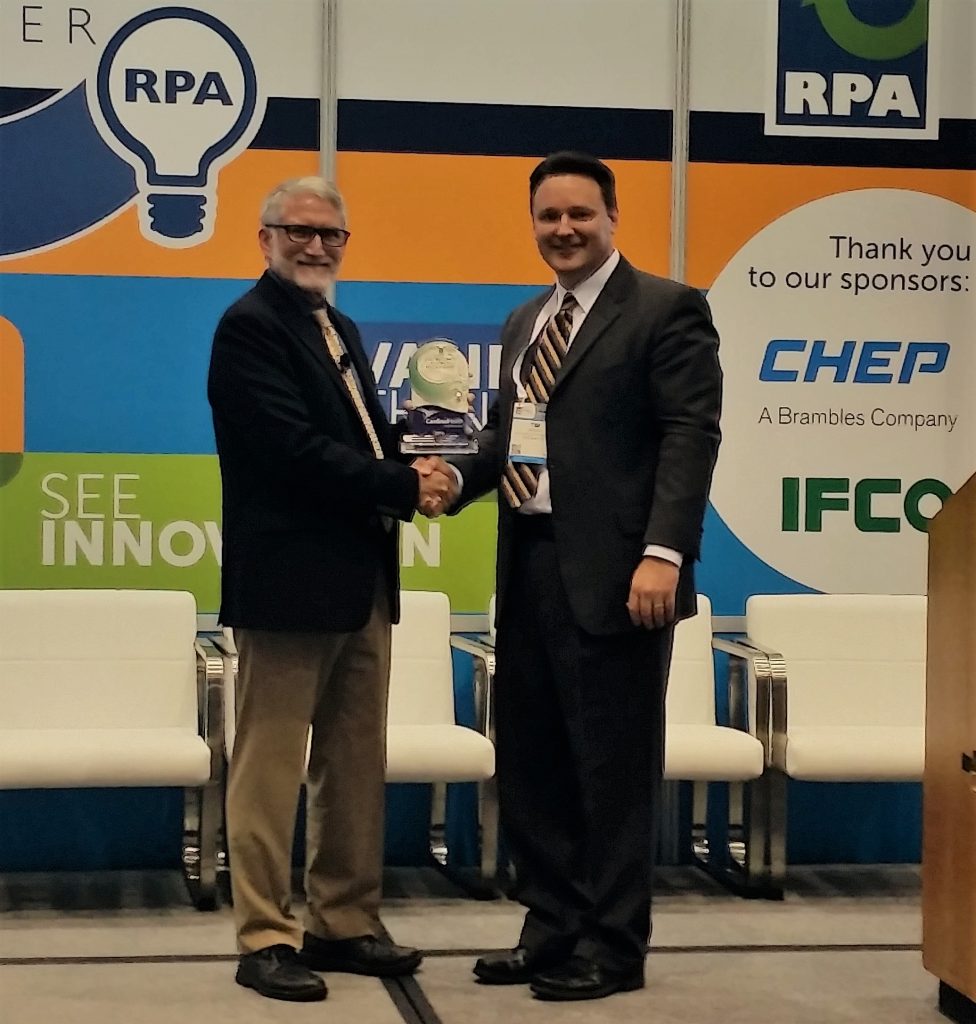
Herman Miller, Boulder Valley School District, and Subaru of Indiana Automotive (2015)
Subaru of Indiana Automotive Inc. took a fresh look at its existing reusable packaging program and uncovered new areas to gain deeper process improvements as well as more cost and environmental savings. SIA achieved a cost savings of nearly $16 million by re-purposing existing reusable packaging from earlier production lines and by replacing additional corrugated containers with new reusable packaging. They also achieved a targeted goal of using reusable packaging for 95 percent of direct ship parts for the production of its 2015 Subaru Outback and Legacy models, keeping more than 28,000 tons of cardboard out of the waste stream.
By using reusable packaging rather than corrugated, Herman Miller, Inc saved more than $400,000 in material and freight costs; and kept 100 tons of waste out of the landfill. The company’s innovative use of outbound reusable packaging helped it earn a customer’s contract that included high standards for safety and sustainability goals.
Boulder Valley School District saved $4,581 and kept 4,587 pounds of cardboard out of the waste stream by switching to reusable packaging for the delivery of apples and beef patties. The food is prepped in three regional kitchens and then shipped out in reusables to individual school cafeterias that serve 12,000 meals daily.
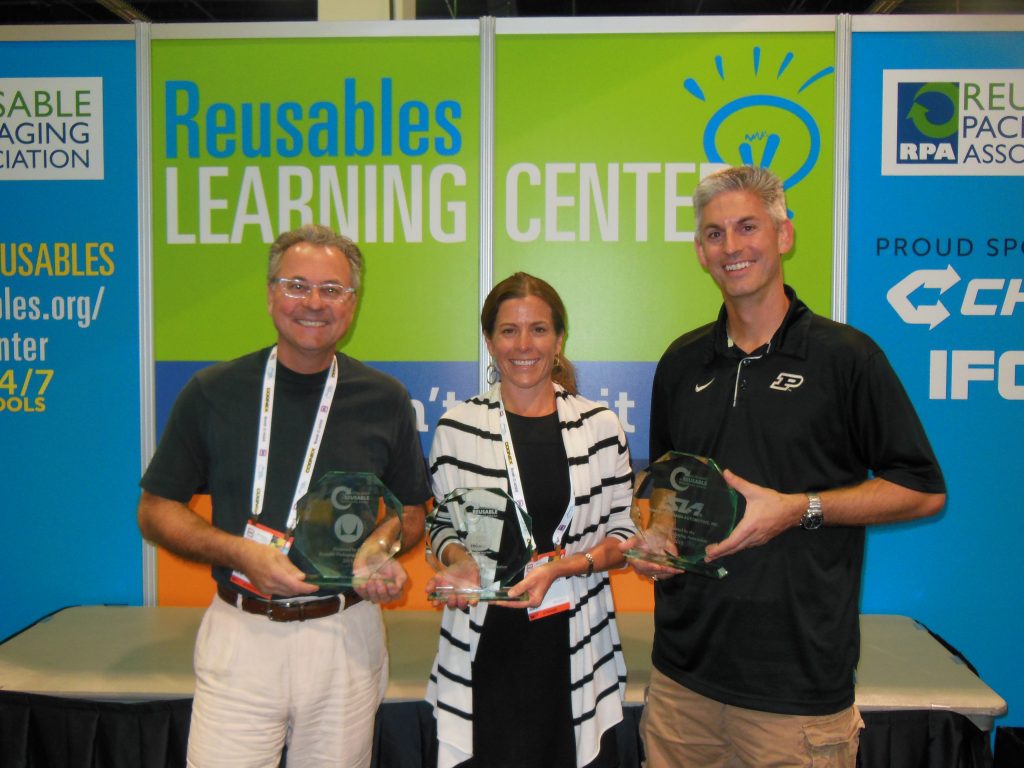
Svenska Retursystem (2014)
Svenska Retursystem led a program to establish a common pooling system for more than 200 food producers in Sweden and food manufacturers throughout Europe that export their goods to the Swedish trade. Since the program’s inception in 2001, nearly 1 billion crates have been delivered, replacing the same number of single use packaging. By offering the whole industry the same terms and cost of packaging, the program has neutralized packaging as a competitive factor and freed up the food producers to focus more on their core business.
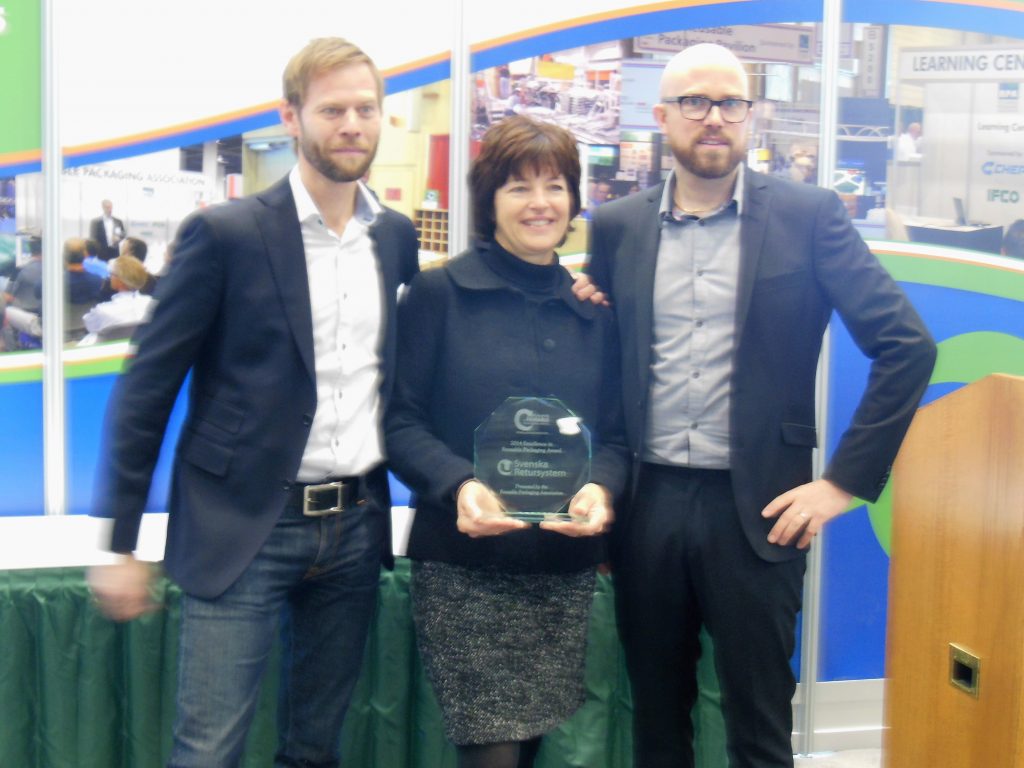
FINELITE (2013)
FINELITE saved $28,000 in costs and eliminating 25,000 pounds of waste annually through the use of many types of reusables for storing and handling parts, and for shipping materials between its factory in Union City, CA and its strategic partners in Livermore, CA and China.
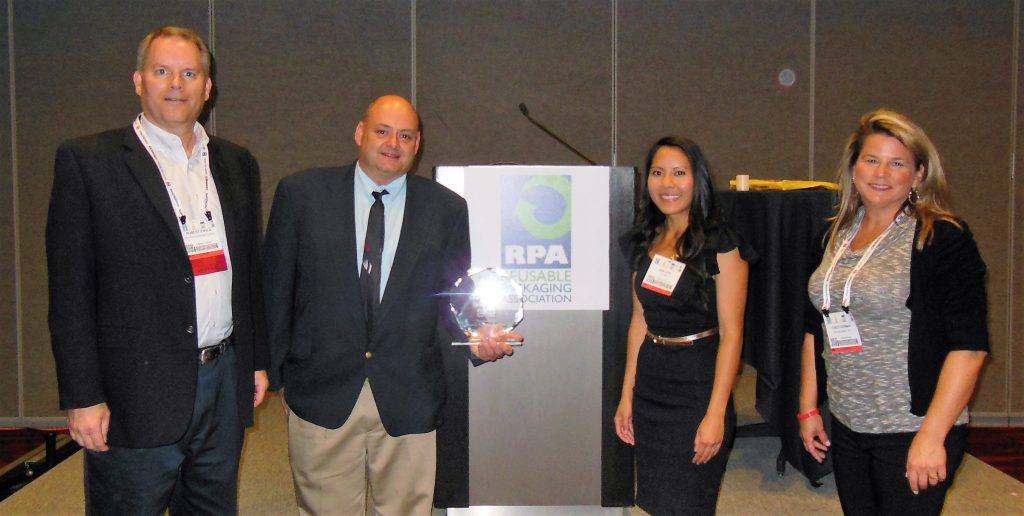
Herman Miller (2012)
Herman Miller’s reusable packaging initiative saved the company $46,000 annually in material and labor.
